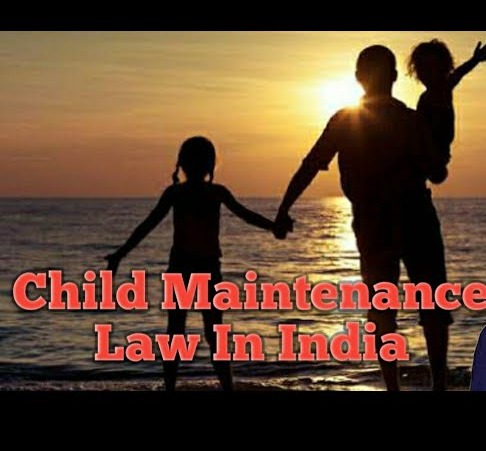V.K. Mohanan, J.@mdashThe complainant in a prosecution for the offence punishable u/s 138 of the Negotiable Instruments Act, 1881 (for short ''the N.I.Act'') is the appellant as it is aggrieved by the Order dated 17.9.2008 in CC. No. 268 of 2007 of the court of the Judicial Magistrate of the First Class-III, Kottarakkara by which the learned Magistrate acquitted the accused u/s 258 of the Cr.P.C. I have heard Smt. N. Sudha, counsel for the appellant. As I proposed to dispose of this appeal at the admission stage itself and considering the safeguard proposed to incorporate in the judgment to protect the interest of the accused, I am of the view that notice to the respondent/accused can be dispensed with.
2. The learned counsel for the appellant vehemently submitted that the impugned order is not legally and factually sustainable. According to the learned counsel, the order impugned is seen to have issued u/s 258 of the Cr.P.C. which provision is not applicable in a case instituted upon a private complaint and it is also pointed out that even otherwise the impugned order is not legally sustainable since even the learned Magistrate is of the opinion that no evidence is adduced and therefore, even if it is conceded for the time being that Section 258 is applicable, no order of acquittal can be issued and the order that can be only the discharge of the accused and in that case the complainant will get an opportunity to prosecute the matter again. It is also the submission of the learned counsel that there was no default on the part of the appellant in appearing before the court below and prosecuting the matter. Considering the amount involved in this case, the counsel submit that one more opportunity may be granted to the appellant to prosecute the matter on merits and to have a decision thereon.
3. I have carefully considered the submissions made by the learned counsel for the appellant and I have gone through the order impugned in this appeal and also perused the copy of ''B'' diary proceedings produced by the appellant.
4. In the B diary proceedings dated 17.9.2008 also it is seen recorded that the complainant and accused were present and the complainant did not adduce evidence even after repeated opportunities and the relevant documents are also not produced and as such no material to proceed further and therefore the accused is acquitted "under Section 258 of the Cr.P.C." (Emphasis supplied). There is little scope for any dispute that the case in the trial court was instituted upon a private complaint preferred by the appellant. If that be so, for the reasons stated by the learned Magistrate, the relevant provisions to be invoked either u/s 256(1) or 255(1) of the Cr.P.C. and not Section 258, based upon the finding of the court below. However, in the present case, the learned Magistrate is not justified in invoking Section 258 of the Cr.P.C. As rightly pointed out by the learned counsel for the appellant, even if it is assumed that Section 258 is attracted, the procedure that ought to have been adopted by the learned Magistrate is to address the Chief Judicial Magistrate or any other Judicial Magistrate, to get sanction u/s 258 of the Cr.P.C. Still then for an order of acquittal, the evidence of the principal witness has to be recorded. But in the present case, no witness was examined. Therefore, there is no question of acquittal, and even on application of Section 258, the order to be passed is a discharge of the accused. Therefore, according to me, the provisions invoked by the learned Magistrate is absolutely incorrect and unwarranted and improper. However, it is pertinent to note that originally the complaint was filed in the Judicial Magistrate of the First Class-I, Kottarakkara, probably in the year 2007 and the impugned order was passed on 17.9.2008. From the ''B Diary'' proceedings, it can be seen that though there were several postings of the case and the complainant was present and though the case was posted purportedly for the evidence, no evidence was adduced and even the relevant documents are not seen produced. Thus it can be seen that there is serious lapse on the part of the complainant in prosecuting the matter effectively. Still then it is a fact that though the court took cognizance for the offence punishable u/s 138 of the N.I.Act, on the basis of the complaint preferred by the appellant, connected with the dishonour of cheque for Rs. 26,744/-, there is no decision on merit. Therefore, according to me, it is only just and proper to grant one more opportunity to the appellant/complainant to prosecute the matter by adducing evidence but subject to terms.
In the result, this appeal is disposed of setting aside the order dated 17.9.2008 of the court of the Judicial Magistrate of the First Class-III, Kottarakkara in CC. No. 268 of 2007, and the matter is remanded back to the same court on condition that the appellant/complainant deposits a sum of Rs. 2,600/- (Rupees two thousand six hundred only) in the trial court on or before 20.4.2013. Accordingly, the appellant/complainant is directed to appear before the trial court on 20.4.2013 on which date, the learned Magistrate is directed to restore the complaint on file and on his satisfaction that the appellant/ complainant deposits a sum of Rs. 2,600/- (Rupees two thousand six hundred only) in the court below as directed above, he is further directed to proceed with the trial of the case from the stage at which the impugned order was passed, in accordance with the procedure and law and dispose of the same on merit. Out of the sum of Rs. 2,600/-, Rs. 2,000/- shall be given to the accused on his appearance and the remaining amount of Rs. 600/- shall be remitted in the State Exchequer. It is made clear that, if there is any failure on the part of the appellant either in depositing the amount mentioned above within the time or in appearing before the court below on the date fixed for its appearance, this order will stand vacated and consequently, the above appeal will stand dismissed. In case the appellant/complainant complies with the above direction and co-operates with the inquiry and trial of the case, the learned Magistrate is directed to expedite the proceedings and dispose of the case as expeditiously as possible as the case pertains to the year 2007.
This Criminal Appeal is disposed of as above.

